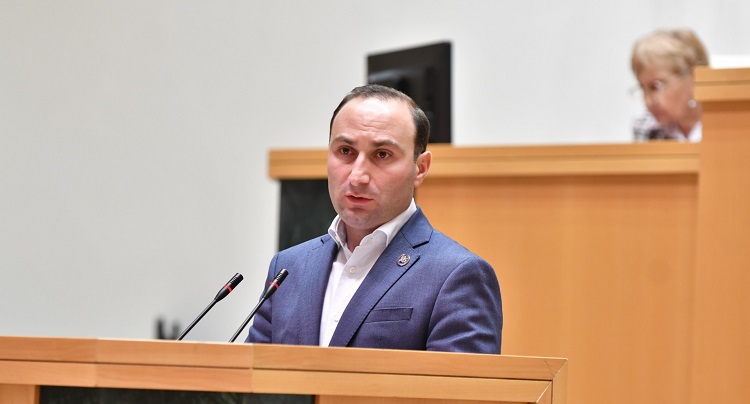Parliament official claims Venice Commission has been “made to write that transparency is bad”

Okhanashvili’s comments came after the Commission on Tuesday “strongly” recommended the Georgian Government to repeal the controversial law. Photo: Parliament of Georgia
Anri Okhanashvili, the Chair of the Georgian Parliament's Legal Issues Committee, on Wednesday claimed the Venice Commission of the Council of Europe had been “made to write that transparency is bad” in its opinion on the controversial Georgian law on transparency of foreign influence.
Okhanashvili’s comments came after the Commission on Tuesday “strongly” recommended the Georgian Government to repeal the controversial law.
The Venice Commission put itself in a difficult reputational position when it wrote an opinion opposing the decision of the Court of Justice of the European Union. They made the Venice Commission write that transparency is bad [while] the Court of Justice of the European Union says that there is an overriding public interest in knowing with what funds specific organisations are working and on what they are spending [these funds]”, the lawmaker said.
Okhanashvili stressed the EU system was “based on the principle of transparency”.
“The main documents for the functioning of the European Union are based on transparency and the transparent work of the European Union institutions”, he said.
The Committee Chair added the ruling Georgian Dream party had proposed use of the veto procedure of the Georgian President to facilitate discussions around the law, added the opportunity had been “missed by the President and radical groups” opposing the legislative piece, after Salome Zourabichvili on Saturday vetoed it.
The Parliament last week adopted the law, which requires groups “considered to be an organisation pursuing the interests of a foreign power” - determined by more than 20 percent of their funding coming from abroad - to be registered in the public registry with the status and publicise their received funding.
The legislative piece was supported by 84 MPs in the 150-member lawmaking body, with 30 voting against.
Zourabichvili vetoed the law on the backdrop of ongoing public protests against the law and criticism from Georgia’s foreign partner states.
 Tweet
Tweet  Share
Share